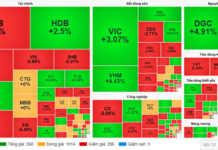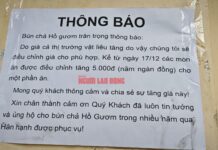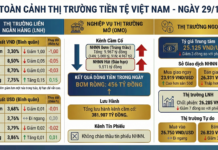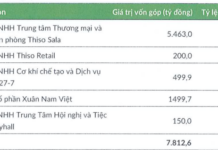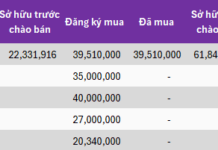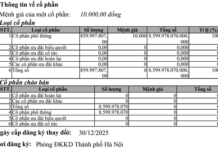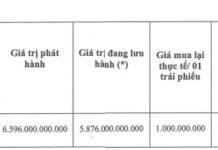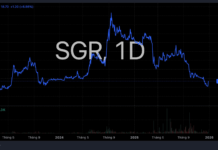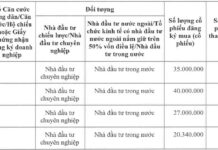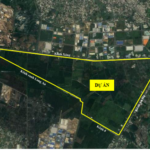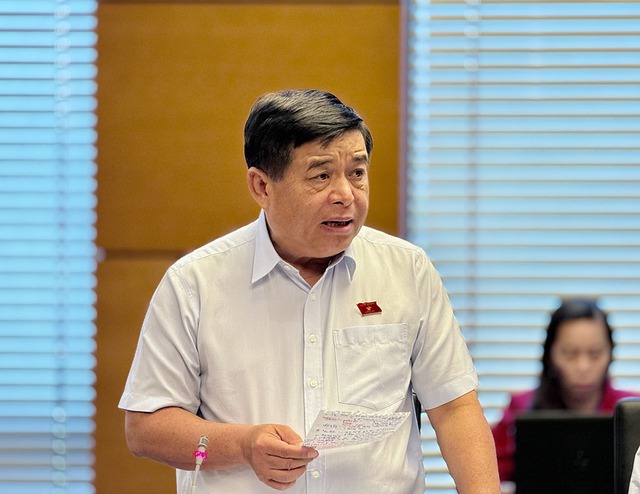
|
Minister of Planning and Investment Nguyen Chi Dung speaks at the group discussion session. Photo: VGP
|
According to the Minister of Planning and Investment, we should not be overly optimistic, but we should listen attentively and avoid being complacent or overly pessimistic.
Minister Nguyen Chi Dung stated that according to the International Monetary Fund’s (IMF) World Economic Outlook Report, Vietnam is predicted to be one of the developing countries with the highest growth rates until 2029. The Minister opined that while we should not overstate the achievements, we also ought not to be pessimistic. Instead, we should focus on the tasks and solutions needed to achieve our goals by the end of the year.
“The bright spot here is the leadership of the Party and the Politburo, along with the National Assembly’s companionship with the Government. We have also issued numerous mechanisms and policies for localities, accelerating the progress of many national key projects. The Government’s relentless and tireless direction, from fiscal and monetary policy management to speeding up public investment disbursement and resolving bottlenecks in the economy, has been a crucial factor in our recovery and development during the past period,” emphasized the Minister.
The Minister also stated that the task of establishing a master plan has been essentially completed, from the national level to regional and local planning, enabling the economy to develop faster and more sustainably. Another bright spot is the performance of exports and FDI, indicating that the Vietnamese economy still has many opportunities and the confidence of investors.
However, Minister Nguyen Chi Dung candidly pointed out certain limitations of the economy, including: businesses facing numerous difficulties, the real estate market not recovering as expected, complex developments in the gold market, and rising airfares affecting the tourism industry.
Elaborating on the reasons for these phenomena, Minister Nguyen Chi Dung explained that the Vietnamese economy is facing challenges that are common to the world. Additionally, Vietnam’s economy is highly open, so external changes have a more significant impact on the country.
Furthermore, Vietnam’s economy is in a state of transition and restructuring, which inherently entails certain difficulties and delays, and cannot be transformed overnight.
There are also challenges related to an aging population, climate change, and slow progress in science, technology, and innovation, which have not yet become driving forces for economic growth.
The Minister predicted that the Vietnamese economy in 2024 will still face many difficulties, but he also highlighted some positive aspects.
Firstly, the overall macroeconomic foundation and the process of economic recovery and growth demonstrate relative stability.
Secondly, numerous policies and innovations have been and are being vigorously promoted and issued, resolving many current obstacles.
Thirdly, industries, agriculture, and services are showing signs of recovery, albeit slowly, but with positive growth trends.
Fourthly, the directions and instructions of the Government, the Prime Minister, and the ministries, sectors, and localities are yielding high effectiveness.
Regarding solutions and tasks for the near future, Minister Nguyen Chi Dung stated that Vietnam will focus on short-term solutions while considering long-term goals.
Simultaneously, efforts will be directed towards boosting three driving forces: investment, consumption, and export, as well as promoting new drivers of growth: economic transformation, especially in the digital, green, and circular economy sectors.
“We should also focus on new industries where we have the conditions to participate more deeply, such as semiconductor chips,” Mr. Dung noted. This should be accompanied by enhancing human resource training and accelerating important public investment projects.
Emphasizing the importance of institutional reform, Minister Nguyen Chi Dung cited the example of the Land Law, which will take effect on July 1st, six months earlier than initially planned, to address bottlenecks in the real estate market. Additionally, improving the institutional framework involves resolving current obstacles, supplementing and synchronously adjusting necessary laws, and creating conditions for officials to be proactive and innovative in their work.
Apart from institutional improvements, there is a need to further reform administrative procedures and enhance the business investment environment. It is crucial to examine administrative procedures in certain sectors, the business investment environment, and investment construction procedures.
“We need to promote decentralization, eliminate the ‘ask-give’ mechanism, and encourage officials to be proactive and innovative. If we do not accelerate these reforms, investors may very well turn to other countries,” Mr. Dung emphasized.
Regarding the specific mechanisms and policies that have been issued and applied to certain localities, it is necessary to evaluate their effectiveness. If these policies are deemed appropriate, effective, and successful, they should be replicated and applied to other localities.
Additionally, it is crucial to address bottlenecks in projects, thereby unleashing resources. By swiftly resolving issues in stalled projects, we can significantly boost the economy, foster trust, and create new resources.

